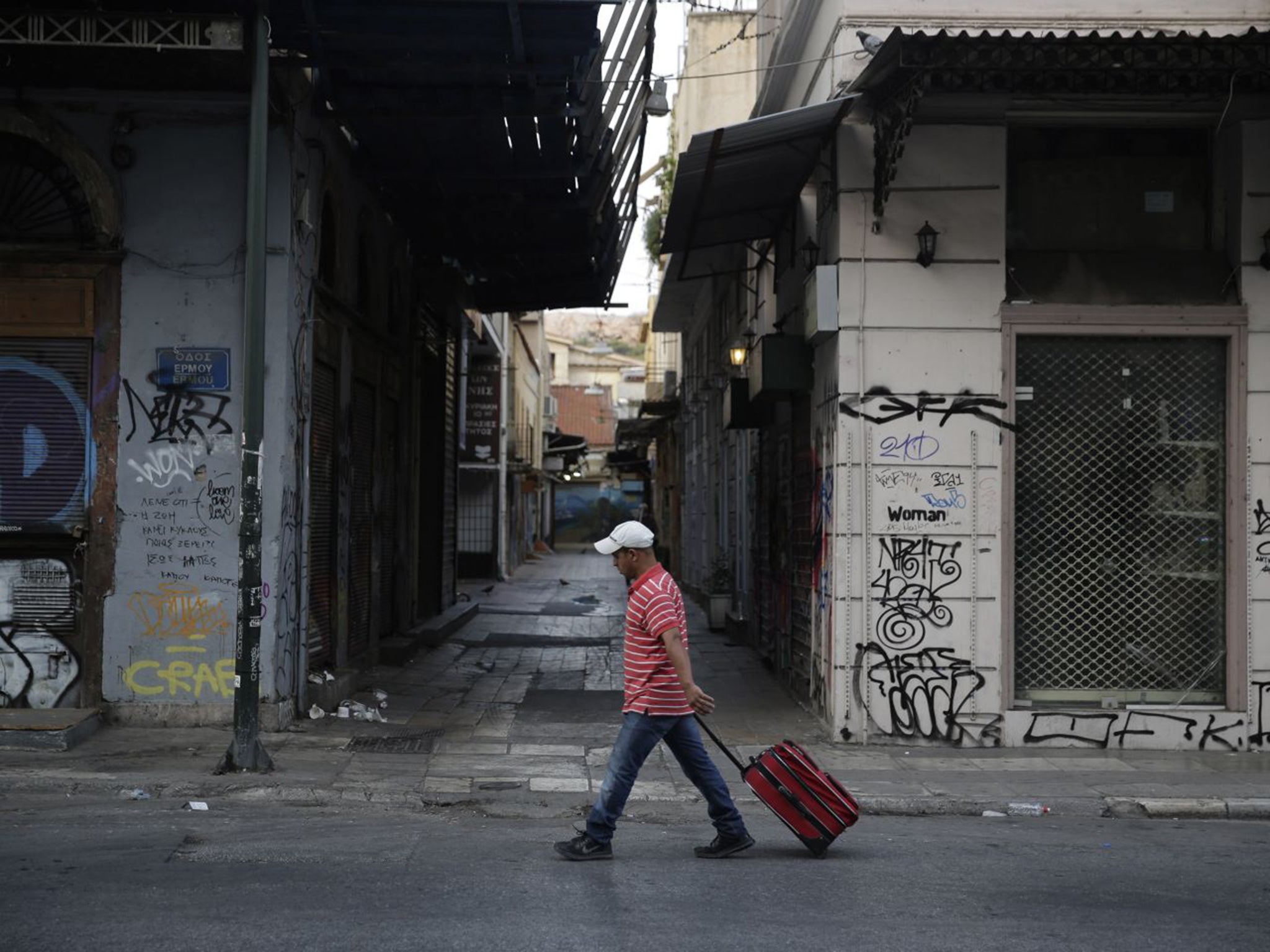Greek debt crisis: The wealthy citizens of Glyfada are worried - and plotting their escape
Passport applications are so high in the area that staff are having difficulty keeping up with demand

Your support helps us to tell the story
From reproductive rights to climate change to Big Tech, The Independent is on the ground when the story is developing. Whether it's investigating the financials of Elon Musk's pro-Trump PAC or producing our latest documentary, 'The A Word', which shines a light on the American women fighting for reproductive rights, we know how important it is to parse out the facts from the messaging.
At such a critical moment in US history, we need reporters on the ground. Your donation allows us to keep sending journalists to speak to both sides of the story.
The Independent is trusted by Americans across the entire political spectrum. And unlike many other quality news outlets, we choose not to lock Americans out of our reporting and analysis with paywalls. We believe quality journalism should be available to everyone, paid for by those who can afford it.
Your support makes all the difference.Crisis? What crisis? A Martian on a fact-finding mission landing in the Athens seaside suburb of Glyfada might wonder what all the fuss was about. Its restaurants and Italian-style cafés are full and the gleaming designer shops appeared to be doing a brisk trade yesterday morning.
Eight miles south of the city’s chaotic centre, Glyfada is a world away from the gritty, working-class suburbs. Luxury apartments, walled gardens and beach clubs set the tone in what is known as the Beverly Hills of Athens.
But beneath the surface, Glyfada’s wealthy citizens are worried, and they’re plotting their escape. In bars and cafés, German Chancellor Angela Merkel and her finance minister Wolfgang Schäuble pop up often in conversation. With their savings at risk, and nerves further frayed by the imposition of capital controls, many people around here are thinking of packing up and leaving.
The passport-issuing office of the Greek police received a surge in applications this week from people in the wealthy Kifissia, Ekali, Filothei, and Psychiko suburbs of northern Athens.

And the passport-issuing division covering the wealthy southern suburbs has experienced a 50 per cent increase in applications for new or renewed documents, compared with the same period last year, according to one Greek national newspaper.
Passport applications are so high that staff are having difficulty keeping up with demand. “The queues outside the passport offices in the northern and southern suburbs are unprecedented,” one police official said. “Wealthy families want to be ready to leave, depending on the country’s situation.”
The report shores up an October 2014 study by the University of Macedonia that found passport applications were surging in towns with the most expensive housing markets.
At a boulangerie in Glyfada’s main shopping street, Orestis Tsaglis, a 31-year-old lecturer, said well-off Greeks were rightly worried about their future. “It’s not just the poor,” he said. “We’re also worried about the effects of Greece not getting a ‘haircut’ [a partial write-off of its debts].”
He voted “yes” in the recent referendum. “It was the least bad option. I don’t have a passport but I will be applying for one,” he said.
Platon Tinios, an economics lecturer at Piraeus University, said he sympathised with fellow citizens applying for passports in a panic. “There is a real fear of things closing in on you. There’s a sense the whole country could close in on itself,” he said, “and it’s not so far-fetched.”
“The middle and upper classes aren’t just grabbing passports because they want to flee the country. It’s to do with the imposition of capital controls, too. If you can’t move capital then open borders don’t really apply, and people might find it harder to travel outside the country and around Europe.” He said many of the upper classes were probably also concerned about the need to travel abroad for private medical treatment.
In the wealthier areas people were more likely to have voted “yes” in the referendum of two weeks ago, and therefore support some sort of financial aid-for-austerity deal.
In the northern suburb of Kifissia, where passport applications have soared 70 per cent, nearly two thirds – 64 per cent – of voters said “Yes”, a reflection of the overall trend in wealthier areas. Nationally, it was the other way around with 62 per cent of voters saying “No”.
But while Greece’s rich might have lost the referendum, Prime Minister Alexis Tsipras’s U-turn over austerity means they may yet get their way. If Greece struggles on inside the eurozone, their investments will be relatively secure and they’ll be able to pop over to London or New York for a bit of shopping, when their passports arrive.
Join our commenting forum
Join thought-provoking conversations, follow other Independent readers and see their replies
Comments